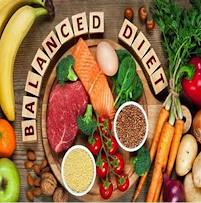Fats Overview & Functions
Fats, also known as dietary fats or lipids, are a class of macronutrients that play a crucial role in the human body. They are an essential part of a balanced diet and are a concentrated source of energy. Fats are composed of carbon, hydrogen, and oxygen atoms and are insoluble in water. They are found in both plant and animal-based foods.
Fats serve several important functions in the body, including:
Energy storage: Fats provide a concentrated source of energy, providing more than double the calories per gram compared to carbohydrates and proteins. They serve as a reserve source of energy that the body can use when needed.
Structural component: Fats are vital for building cell membranes throughout the body. They help maintain the integrity and fluidity of cell membranes, ensuring proper cell function.
Insulation and protection: Fats are also essential for providing insulation and protecting organs within the body. They form a protective layer around vital organs, helping to cushion them from impact.
Absorption of fat-soluble vitamins: Fats aid in the absorption of fat-soluble vitamins (A, D, E, and K) in the digestive system. These vitamins require fat to be properly absorbed and utilized by the body.
Types of Fats:
There are different types of fats, classified based on their chemical structure, and they have varying effects on health:
Saturated fats: These fats have all their carbon atoms saturated with hydrogen atoms, making them solid at room temperature. They are commonly found in animal products like meat, butter, cheese, and full-fat dairy. High consumption of saturated fats has been linked to an increased risk of heart disease and should be consumed in moderation.
Unsaturated fats: These fats have one or more double bonds in their carbon chain, making them liquid at room temperature. They are further divided into monounsaturated fats (found in olive oil, avocados, and nuts) and polyunsaturated fats (found in fish, certain oils, and nuts). Unsaturated fats are generally considered heart-healthy and are recommended in moderate amounts.
Trans fats: These are artificially produced fats through a process called hydrogenation. Trans fats can be found in some processed and fried foods and are known to raise bad cholesterol levels (LDL) while lowering good cholesterol levels (HDL). Consuming trans fats should be minimized or avoided altogether.
It's essential to have a balanced intake of fats in your diet, focusing on healthier sources of fats and limiting the consumption of saturated and trans fats to promote overall health and well-being. The recommended daily intake of fats may vary based on individual health and activity levels, so it's best to consult with a healthcare professional or a registered dietitian for personalized dietary advice.
















































.jpg)

